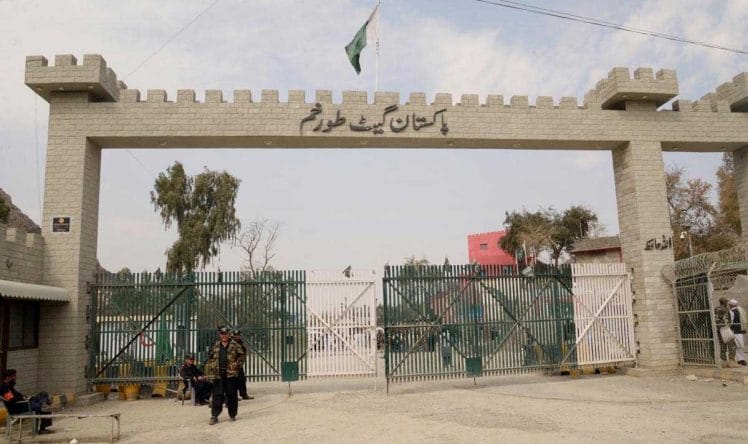In the scenic but increasingly tense region of Khyber, government officials and traders engaged in critical discussions on Tuesday, aiming to resolve visa restrictions affecting Afghan transporters. The situation reached a peak when the Afghan Taliban authorities issued a stark warning: find a satisfactory solution or face permanent closure of the Torkham and Kharlaachi borders with Pakistan.
According to sources at Torkham, the situation is precarious. A flag meeting between Pakistani and Afghan border officials ended with discord. The Afghan Taliban halted talks, dissatisfied with the new visa restrictions, and communicated that unless there was a bilateral agreement, dialogue would cease.
The Afghan stance was unambiguous. They had not been given sufficient notice before the visa policy was enforced and demanded that stranded Afghan transporters be allowed to return home. Thereafter, they would shutter the borders for good, solidifying their position with a concrete barrier at the main crossing.
This diplomatic impasse has tangible repercussions. The Torkham border has been inactive for four days, disrupting trade and compelling fruit traders to retreat to Peshawar, where they face potential spoilage of goods. A meeting ensued between local traders, the Sarhad Chamber of Commerce and Industries (SCCI), and the Khyber Pakhtunkhwa caretaker Chief Minister Justice (Retd.) Arshad Hussain. The traders outlined the detrimental impact of the visa restrictions, expressing that it could result in Pakistan irreversibly losing the Afghan market.
Former SCCI President Zahidullah Shinwari shared with the media the delegation’s recommendation to delay the visa policy for two months, granting transporters time for compliance. The Chief Minister, empathetic yet constrained, committed to relaying their concerns to the federal level but affirmed his inability to amend visa policies independently.
To further complicate matters, another meeting of senior customs and security officials highlighted their viewpoint. The officials argued that the requirement for proper documentation was a global standard, one that Afghanistan had neglected to meet despite being informed of policy changes.
The new visa regulations are not merely bureaucratic hurdles, they’re tools to maintain oversight of border activity, as explained by Torkham’s immigration officials. They believe this control is crucial for monitoring frequent cross-border movement.
This stalemate at the border between Pakistan and Afghanistan is not just a local issue—it has regional trade implications and reflects broader geopolitical complexities. As these two neighboring nations grapple with policy and sovereignty, the fallout affects not just governments but also the livelihoods of traders and local economies.
Statement by the Spokesperson in response to the statement by the Afghan Ministry of Foreign Affairs on the closure of the Pakistan-Afghanistan border
— Spokesperson ?? MoFA (@ForeignOfficePk) September 11, 2023
The impasse serves as a reminder of the delicate nature of international relations and border policies. It underscores the challenge of balancing national security concerns with the needs of local economies and trade relationships.
As we await the outcome of this standoff, the local communities can only hope for a swift and amicable resolution that allows for the resumption of trade and the normal flow of life. We invite our readers to stay informed on this developing story and to consider the broader implications of such border closures. Your insights and perspectives are invaluable as we engage in this ongoing dialogue about regional stability and economic prosperity.












